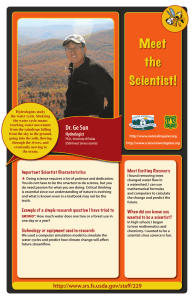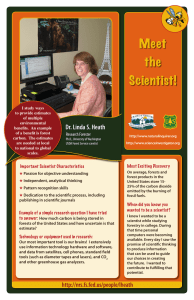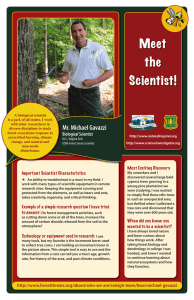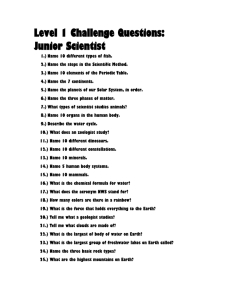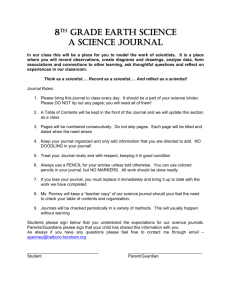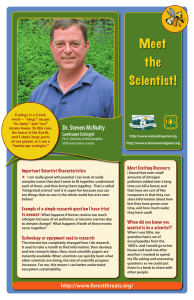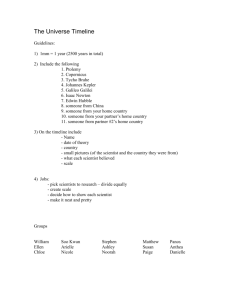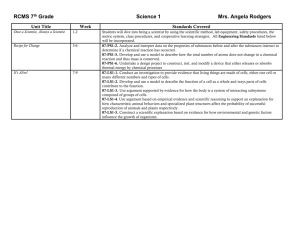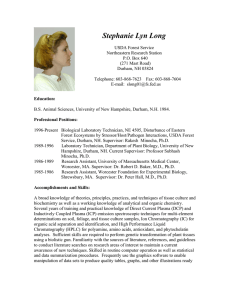Meet the Scientist! Dr. Rakesh Minocha
advertisement
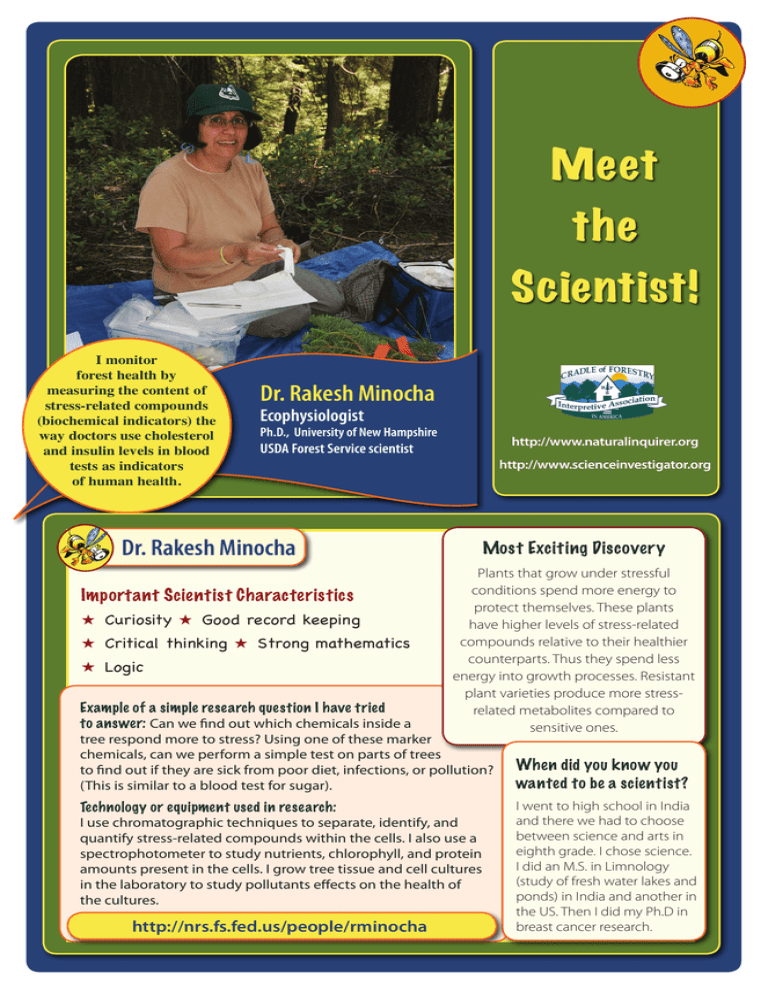
Meet the Scientist! I monitor forest health by measuring the content of stress-related compounds (biochemical indicators) the way doctors use cholesterol and insulin levels in blood tests as indicators of human health. Dr. Rakesh Minocha Ecophysiologist Ph.D., University of New Hampshire http://www.naturalinquirer.org USDA Forest Service scientist http://www.scienceinvestigator.org Dr. Rakesh Minocha Important Scientist Characteristics H Curiosity H Good record keeping H Critical thinking H Strong mathematics H Logic Most Exciting Discovery Plants that grow under stressful conditions spend more energy to protect themselves. These plants have higher levels of stress-related compounds relative to their healthier counterparts. Thus they spend less energy into growth processes. Resistant plant varieties produce more stressrelated metabolites compared to sensitive ones. Example of a simple research question I have tried to answer: Can we find out which chemicals inside a tree respond more to stress? Using one of these marker chemicals, can we perform a simple test on parts of trees to find out if they are sick from poor diet, infections, or pollution? (This is similar to a blood test for sugar). Technology or equipment used in research: I use chromatographic techniques to separate, identify, and quantify stress-related compounds within the cells. I also use a spectrophotometer to study nutrients, chlorophyll, and protein amounts present in the cells. I grow tree tissue and cell cultures in the laboratory to study pollutants effects on the health of the cultures. http://nrs.fs.fed.us/people/rminocha When did you know you wanted to be a scientist? I went to high school in India and there we had to choose between science and arts in eighth grade. I chose science. I did an M.S. in Limnology (study of fresh water lakes and ponds) in India and another in the US. Then I did my Ph.D in breast cancer research.
